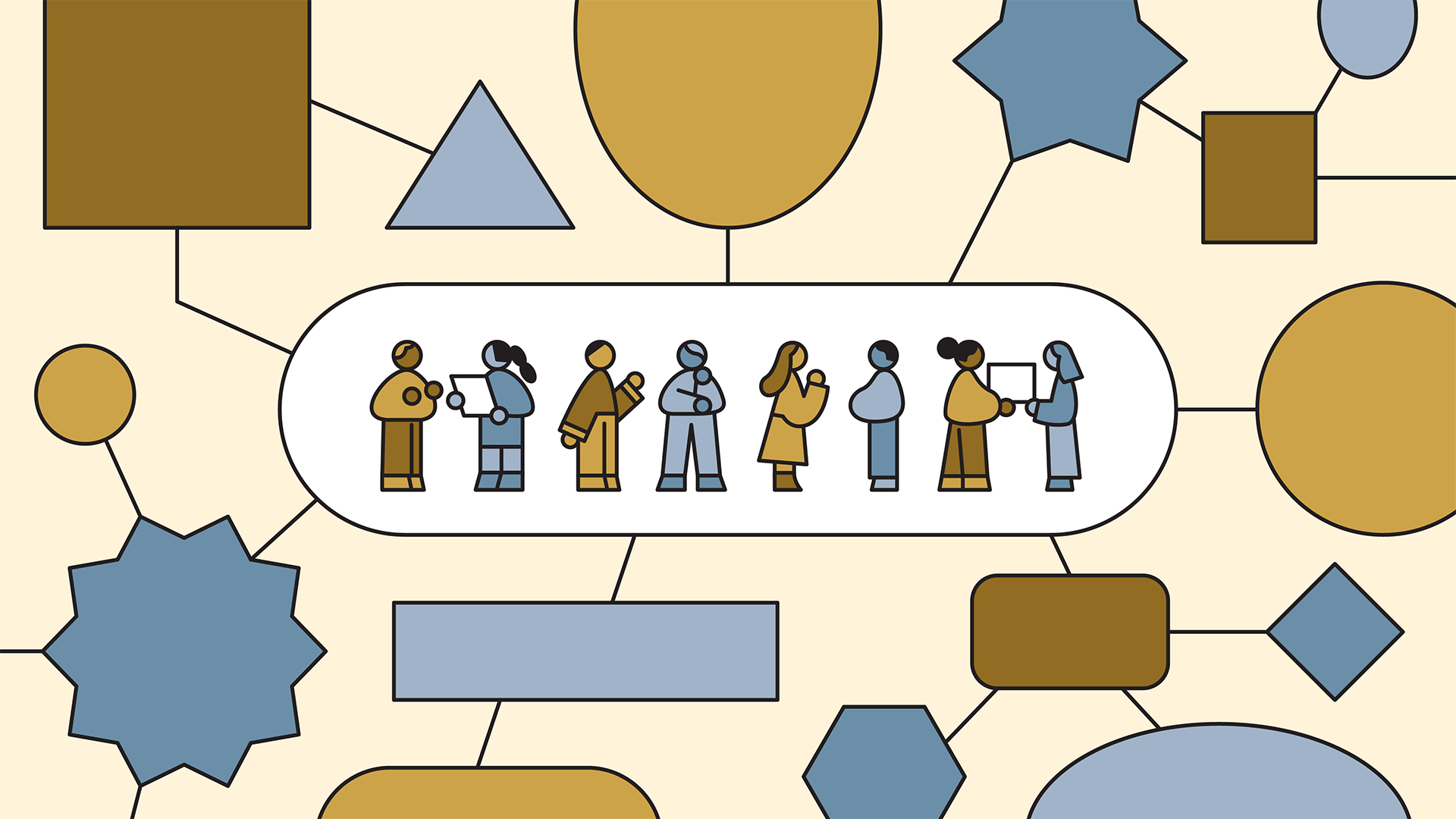AI Insights
Google’s top AI developer makes alarming prediction for the next six months of artificial intelligence
Google’s top AI developer makes an alarming prediction for the next six months of artificial intelligence.
Among the big tech players of Grok’s Elon Musk and OpenAI’s Sam Altman, another key player in the AI race is gaining attention.
Logan Kilpatrick might not be a household name yet, but as the face of Google‘s AI development and marketing, he’s at the centre of one of the industry’s most important battles.
At just 27 years old, Kilpatrick is responsible for Google’s AI Studio and Gemini API as head of developer relations, serving as the translator between the company’s advanced AI research and the developers who will build next-gen AI applications.
The importance of Kilpatrick’s work has grown as Google competes for existing developers but also for fresh talent in coding, given AI’s ability to lower barriers to software development.
“If you want AI to have the level of impact on humanity that I think it could have, you need to be able to provide a platform for developers in order to go and do this stuff,” he told Business Insider.
“The reality is there’s a thousand and one things that Google is never going to build, and doesn’t make sense for us to build, that developers want to build.”
Now, the AI leader has predicted what we can expect from AI in the next six months.
Taking to X this week, Kilpatrick posted: “The next 6 months of AI are likely to be the most wild we will have seen so far.”
He then followed up with some more details, writing: “Everything keeps scaling up” before specifying ‘more hardware, more model progress, more product knowledge, more AI momentum, more pmf [product-market fit]’.
We’ve seen ChatGPT explode in popularity, the abundance of realistic AI image and video generation, new AI players like DeepSeek entering the scene and AI capabilities progressing at a breakneck speed.
But according to Kilpatrick, we haven’t seen anything yet.
When asked if he was referring to any advancements for Google’s Gemini chatbot, Kilpatrick directly replied with ‘yes.’
Google’s position in the AI competition is complicated. On one hand, their latest Gemini 2.0 Pro model consistently ranks at the top of several performance leaderboards across multiple testing categories.
However, the number of Gemini users tells a different story.
Google CEO Sundar Pichai reported in May that Gemini has more than 400 million monthly active users, which sounds impressive until you compare it to ChatGPT’s 500 million weekly active users reported by Sam Altman in April.
Still, some users on social media are optimistic about the AI revolution.
“Definitely one of the most fascinating times of my life! I’m here for the ride!” one X user responded.
“We are witnessing the greatest moment of this timeline,” claimed another.
Meanwhile, others were sceptic and figured the predictions were all just hype.
“Not going to lie, the last six months were pretty disappointing,” one X user commented, while another argued: “That’s what they said a year ago”.
Someone else noted.: “To be honest, every 6 months is wilder than the last in AI.”
AI Insights
First lady Melania Trump hosts Task Force on Artificial Intelligence Education meeting

WASHINGTON (TNND) — First Lady Melania Trump will join members of the White House Task Force on Artificial Intelligence Education and private sector leaders for a meeting Thursday.
This is the second meeting of the task force, where the first lady, task force members, and others will speak about the over 135 pledges made to support AI education across the country.
“I predict AI will represent the single largest growth category in our nation during the Trump Administration—and I won’t be surprised if AI becomes known as the greatest engine of progress in the history of the United States of America. But, as leaders and parents we must manage AI’s growth responsibly. During this primitive stage, it is our duty to treat AI as we would our own children—empowering, but with watchful guidance. We are living in a moment of wonder, and it is our responsibility to prepare America’s children,” said the first lady.
In August, the first lady launched a nationwide Presidential Artificial Intelligence Challenge, which invites students and educators to”unleash their imagination and showcase the spirit of American innovation.”Students can sign up by visiting AI.Gov.
The actions follow an executive order signed by President Donald Trump in April on “Advancing Artificial Intelligence Education for American Youth.”
Melania Trump has long worked to protect children online through her BE BEST initiative and the passage of the TAKE IT DOWN Act, which received bipartisan support and was signed into law by the president in May.
The TAKE IT DOWN Act aims to combat the proliferation of artificial intelligence-generated explicit imagery, a growing concern in the digital age. The bill also seeks to protect children from deep fake exploitation.
“As first lady, my commitment to the Be Best initiative underscores the need for online safety,” the first lady said. “Ensuring their protection is not just a responsibility but a vital step in nurturing future leaders,” the first lady said in March.
On Thursday evening, President Trump will host major tech CEOs for a dinner at the White House.
The guest list includes Microsoft cofounder Bill Gates, Apple CEO Tim Cook, Meta CEO Mark Zuckerberg and a dozen other executives from the biggest artificial intelligence and tech firms, the White House says.
Some of the attendees at Trump’s dinner are expected to participate in the first lady’s task force meeting.
AI Insights
Sponsoring Cross-Functional Projects That Succeed

September 4, 2025
Cross-functional collaboration has always been critical for innovation. New problems and new solutions require functional groups to work together in new ways.
AI Insights
Head of UK’s beleaguered Alan Turing Institute resigns | Artificial intelligence (AI)

The chief executive of the UK’s leading artificial intelligence institute is stepping down after a staff revolt and government calls for a strategic overhaul.
Jean Innes has led the Alan Turing Institute since 2023, but her position has come under pressure amid widespread discontent within the organisation and a demand from the institute’s biggest funder, the UK government, for a change in direction.
ATI said the search was already under way for a replacement for Innes, who held senior roles in the civil service and technology industry before her appointment.
Innes said on Thursday: “It has been a great honour to lead the UK’s national institute for data science and artificial intelligence, implementing a new strategy and overseeing significant organisational transformation. With that work concluding, and a new chapter starting for the Institute, now is the right time for new leadership and I am excited about what it will achieve.”
ATI has been beset by internal strife since last year as staff protested against internal changes, culminating in a group of employees filing a whistleblower complaint to the Charity Commission last month.
-

 Business6 days ago
Business6 days agoThe Guardian view on Trump and the Fed: independence is no substitute for accountability | Editorial
-
Tools & Platforms3 weeks ago
Building Trust in Military AI Starts with Opening the Black Box – War on the Rocks
-

 Ethics & Policy1 month ago
Ethics & Policy1 month agoSDAIA Supports Saudi Arabia’s Leadership in Shaping Global AI Ethics, Policy, and Research – وكالة الأنباء السعودية
-

 Events & Conferences4 months ago
Events & Conferences4 months agoJourney to 1000 models: Scaling Instagram’s recommendation system
-

 Jobs & Careers2 months ago
Jobs & Careers2 months agoMumbai-based Perplexity Alternative Has 60k+ Users Without Funding
-

 Education2 months ago
Education2 months agoVEX Robotics launches AI-powered classroom robotics system
-

 Funding & Business2 months ago
Funding & Business2 months agoKayak and Expedia race to build AI travel agents that turn social posts into itineraries
-

 Podcasts & Talks2 months ago
Podcasts & Talks2 months agoHappy 4th of July! 🎆 Made with Veo 3 in Gemini
-

 Podcasts & Talks2 months ago
Podcasts & Talks2 months agoOpenAI 🤝 @teamganassi
-

 Education2 months ago
Education2 months agoMacron says UK and France have duty to tackle illegal migration ‘with humanity, solidarity and firmness’ – UK politics live | Politics





















